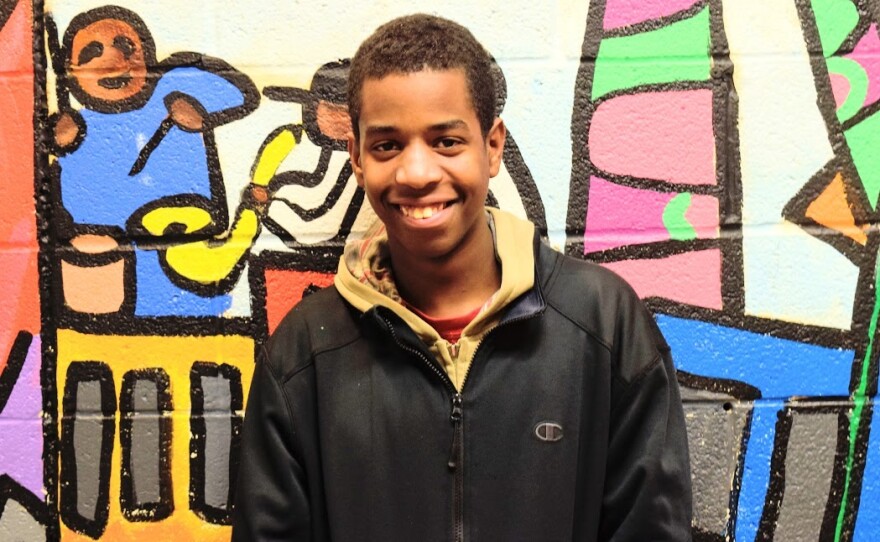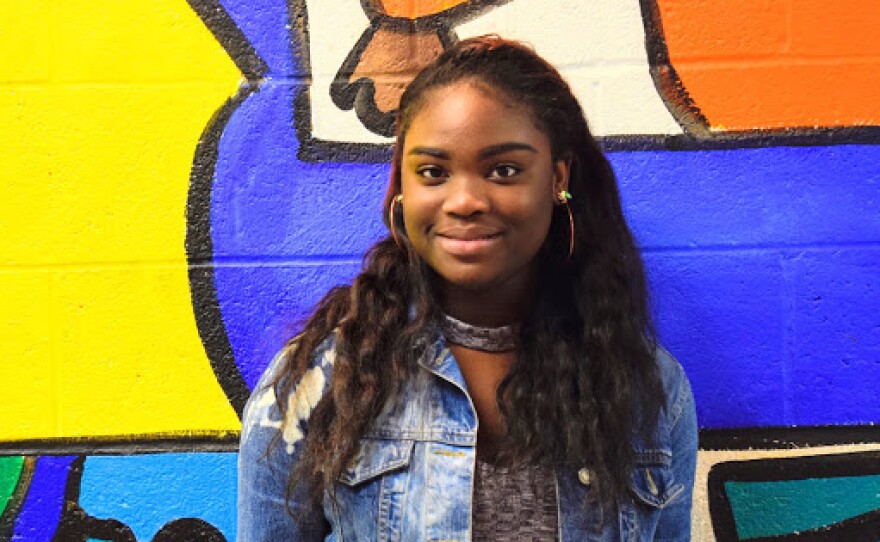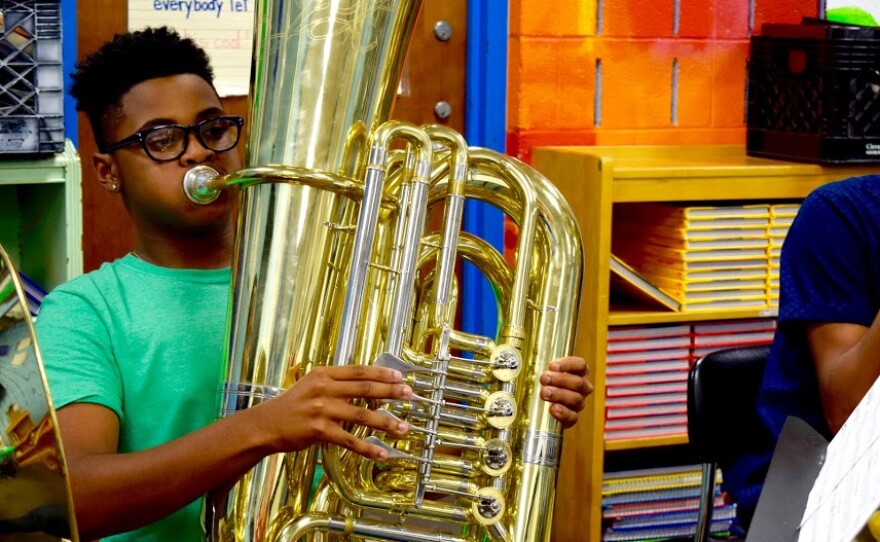When was the last time you heard a 12-year-old rhapsodizing about Beethoven, Mozart and especially Shostakovich?
Or seriously considering a career in astrophysics.
Or, before the age of 10, seeming to have the makings of an orchestra-level flute player. If you spent any time around the Baltimore Symphony Orchestra’s Orch-kids program you’d hear all that.
Brian Prechtl, BSO percussionist and –from-the-beginning Orch-kids mentor, says the program gives kids "the idea of what they could achieve if they apply themselves."
"That is really the stuff that’s going to last their entire lives no matter what they do."
Naturally, they won’t all be orchestra musicians, nor is that the goal of the program. The goal is to impart a sense of the world’s possibilities, and the realization that even lofty goals can be reached.
Dan Trahey, Orch-kids’ charismatic director, says the kids are like the "Indiana Jones of musical educational and social change."
"They’re seeing so much. They’re in the cave gathering information."
Baltimore turns out to be one enriching cave for the 1,200 Orch-kids’ scholars.
"They have the Baltimore Symphony, the Peabody Preparatory and Conservatory, the Baltimore School for the Arts and the Baltimore City Public School," says Trahey.
They also have the Los Angeles Philharmonic because they are part of something called "Take A Stand," as in a music stand, or, better yet, taking a stand for talented kids from poor neighborhoods across the country.
Karen Zorn, president of the Longy School of Music in Boston, conceived of and pushed the program.
"I think it’s incredibly relevant for a variety of reasons," she says. "When we talk about what’s going on in society today, children are often the first to be left behind. So is music."
Baltimore’s cave, it turns out, has no boundaries. And the Orch-kids adventurers find their way quite well.
Take Asia Palmer, for example. She’s a flute player at the School for the Arts, but she wants to be a physicist or an astronomer. She found her passion in 7th grade at Franklin Square Elementary-Middle school. Sean McNally, her science teacher there, called her "one of the high fliers in the class."
And in the constellation of influence, no one should forget the parents. Asia’s mom, Lynette, made a deal with her. If you get accepted at the School for the Arts, you will go there. If not, you can follow your friends. Asia said okay.
When she got back from Interlochen last year, Asia had decided her mother was right.
"I just think being there in that atmosphere of other kids coming from all over the world," her mother said.
Travel can do that. At Bard and Interlochen Orch-kids players could see how they matched up with other young musicians around the country and found out they did pretty well.
There was 12-year-old Lowrider James, a precocious tuba player. He found his playing equal to or better than kids he met. Nor is he lacking for confidence.
"I started when I was six or seven in the second grade," he said. "So it was quite easy for me."
He’s the one who rhapsodizes about Shostakovich, the Russian pianist and composer of the early 20th century.
"One of the best composers who ever lived," Lowrider says. That’s because it’s all about the passion.
"Like your heart’s pounding. It doesn’t matter if you heard it three times in a row."
It’s all about passion and practice and opportunity. Jonah Lassiter, the promising flute player; Asia Palmer, the aspiring astrophysicist; or Lowrider Palmer, the tuba playing Shostakovich fan – each one, a citizen-musician made in Baltimore.





